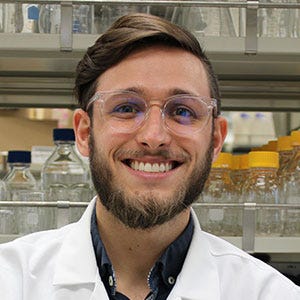Lessons in Education: Insights from the Student Experience
A recent conversation reminded me that it's not just what you teach it's how you teach it.
Dan Nemeth is passionate about science, a sentiment that might seem obvious given his role as a post-doctoral fellow—after all, you don’t earn a PhD and pursue a career in research unless you're deeply passionate about science. Dan’s passion, however, extends well beyond the typical researcher’s enthusiasm. When Dan isn’t in the lab conducting his research on how the brain and immune system interact, he’s teaching undergraduate courses, watching YouTube videos about neurobiology, creating podcasts featuring visiting scientists, or writing children’s books about neuroanatomy and disease.

While chatting with Dan I realized that his story of discovering scientific research as a career could be helpful to myself and other educators. While today he’d confidently tell you that he made the right choice, Dan didn’t always know that he wanted to pursue a career in science. Though he’s always been a good student who enjoyed learning, he often felt that his school lessons were not relevant to ‘real’ life. “I’d sit in chemistry balancing equations and feel like I was wasting time,” he explains. For those of us in education, this is an ever-present hurdle. Explaining complicated concepts to students is certainly a challenge, but it pales in comparison to the far bigger hurdle of convincing them that learning these concepts is worthwhile.
It wasn’t until he took an AP biotechnology course that his perspective shifted, and he realized a career in scientific research might be the right path for him. The first half of the class was a lecture format like his other classes, but the second half was lab-based, and that made all the difference. For the first time, Dan wasn’t just sitting in a class and having information dictated at him. Instead, he was taking lessons and applying them directly to hands-on projects like cloning DNA and designing miniature ecosystems. It was this experience that made Dan realize that a career in scientific research was for him.
In addition to the lecture and lab times in his AP biotechnology class, the class also participated in local science competitions where they would answer questions ranging in topic from elements of the periodic table to mechanisms of DNA splicing. His competitive nature then further encouraged Dan to hit the books and learn everything he could about biotechnology.
Dan’s story offers valuable lessons on the importance of framing and context in education. As educators, it’s not enough to merely deliver facts. We must place our lessons within the context of our students' everyday lives, whether through interactive labs, classroom debates, or competitive games.
We put together a YouTube playlist with some of the fun activities we do with our students to break up the monotony of lectures. What fun ways have you found of engaging your students?



